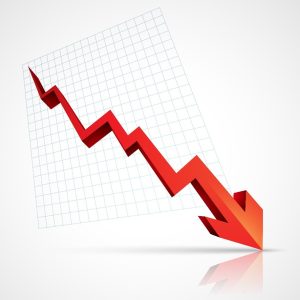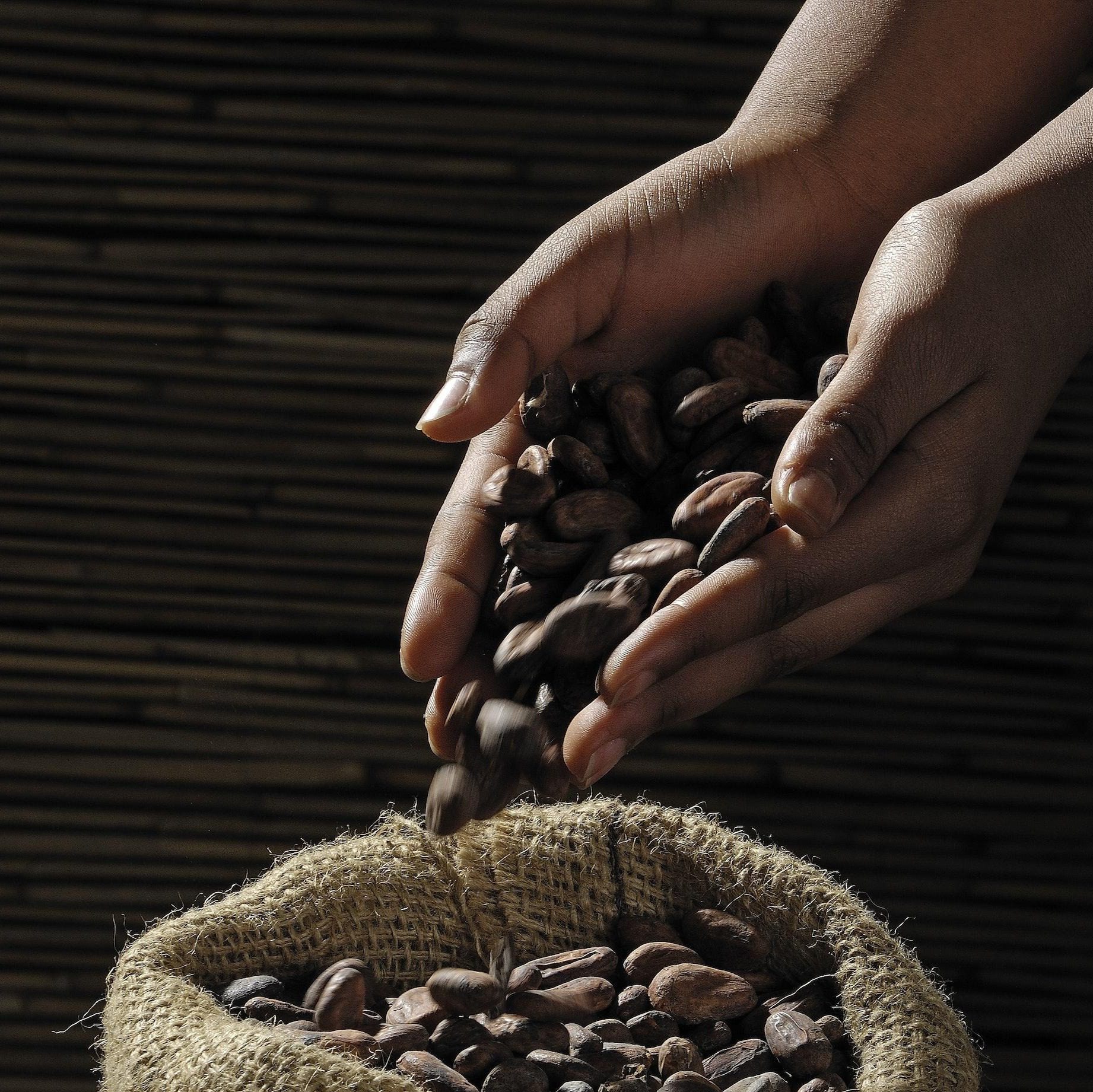FG, OIL FIRMS SIGN CONTRACT FOR OFFSHORE BLOCKS
The Federal Government, through the Nigerian Upstream Petroleum Regulatory Commission, has signed a production sharing contract with TotalEnergies and South Atlantic Petroleum for Petroleum Prospecting Licences 2000 and 2001. The blocks, awarded in the 2024 licensing round, cover about 2,000 square kilometres in the Niger Delta Basin. TotalEnergies will hold an 80 per cent interest as operator, while Sapetro will take a 20 per cent stake. The fiscal package features a $10m signature bonus, alongside production bonuses of two million barrels and four million barrels, or their cash equivalents, upon achieving output levels of 35 million and 100 million barrels, respectively. Speaking at the signing ceremony for the Execution of the Production Sharing Contract with NNPC Limited and the TotalEnergies–Sapetro Consortium in Abuja on Monday, the NUPRC Chief Executive Officer, Gbenga Komolafe, said the deal marks “a new chapter” in Nigeria’s upstream oil and gas industry. This development follows the commission’s move last month to unlock an additional 810,000 barrels per day from Nigeria’s deepwater fields through its new cluster and nodal development initiative. Komolafe also praised President Bola Tinubu for reforms in the sector, including the 2024 executive orders on fiscal incentives, local content, and contract timelines, which he said had catalysed investment inflows. He said, “It gives me great pleasure, and indeed a deep sense of purpose, to welcome you to this important closing ceremony for the execution of the Production Sharing Contract covering Petroleum Prospecting Licences 2000 and 2001. “These licences, awarded to TotalEnergies and its partner South Atlantic Petroleum in the 2024 Licensing Round, mark a new chapter in our upstream oil and gas industry. Let me begin by paying glowing tributes to His Excellency, President Bola Tinubu for the bold initiatives and reforms in the industry as well as his steer that undeveloped assets must return to the basket for rebidding and award to competent bidders in line with provisions of the PIA. The awardees of 2000 and 2001 licences clearly have become beneficiaries of the laudable initiatives and reforms of Mr President.” Komolafe said the PSC provides clarity on cost recovery, profit oil sharing, royalties, and host community obligations in line with the Petroleum Industry Act. It also includes terms on gas utilisation, decommissioning, and environmental remediation. “Today is not just about signing documents. It is about laying the foundation for new exploration and investment. This PSC signals the start of a committed work programme that will help us unlock the untapped geological potential of our deepwater, expand our reserves, boost production, and strengthen Nigeria’s energy security. It also affirms our broader vision to make Nigeria the premier destination for upstream investment in Africa. “Importantly, the PSC sets out clear terms and conditions to guide this partnership. These include the payment of a signature bonus as stipulated in the licensing round and production bonuses tied to commercial milestones, ensuring value to the Federation; A defined minimum work programme, with the requirement to provide guarantees to assure performance. “Of course, this journey was not without challenges. Attracting investors to the 2024 Licensing Round was not easy. But with the approval of Mr. President, the Commission adopted a pragmatic solution introducing minimum signature bonuses as consideration for asset awards. This approach aligned Nigeria with international best practice, where countries like Thailand, Israel, Guyana, and Brazil have moved away from heavy, front-loaded bonuses towards minimal or no signature bonuses to attract investment.” Komolafe added that the commission has implicit confidence in TotalEnergies and its partners to fulfill the terms within the allowed windows for mutual benefits to Nigeria. Also speaking at the event, the group Chief Executive Officer of the Nigerian National Petroleum Company Limited, Bayo Ojulari, described the contract as “unique,” noting that it is the first deepwater PSC awarded since the PIA and the first to comprehensively include crude oil and natural gas terms. Highlighting key contractual terms, Ojulari said the agreement includes performance-based incentives such as a $10m signature bonus and production bonuses tied to output milestones, with a cost recovery limit set at 70 per cent. “This particular PSC is unique in many respects, and I just want to highlight a few. It is the first in the deep water offshore PSC following the successful completion of the 2024 licensing round. “It is the first PSC that comprehensively covers in scope both crude oil and natural gas. It is the first PSC with robust gas terms, including a profit gas split that incentivises monetisation of non-associated gas. As you know, the whole non-associated gas in the deep water is one of the critical areas that we need to really push the frontiers in Nigeria. “We are very proud for that achievement. The PSC is properly framed to reflect the nuances of the PIA, the robust multifaceted role of the Commission, the governance and oversight of the concessionaire, and the obligations of the contractor to conduct offshore petroleum operation in a responsible manner with guidance and significant value delivery to the Federation. “The PSC has robust fiscal terms. One, a signature bonus of $10m, production bonus of two million barrels, and four million or cash equivalent on attainment of 35 million barrels and 100 million barrels production respectively. So there is an incentive for performance, which we think is very significant. These terms enhance the Federation’s stake while ensuring a good return on investment to the contractor. This PSC is an attempt to address the gap of the past with a document that is reflective of the PIA, resilient, and complete. It will help us move closer to the target of three million barrels per day and attract new investments,” he explained. The Country Chair of TotalEnergies in Nigeria, Matthieu Bouyer, reaffirmed the company’s deep and enduring commitment to Nigeria. “Today marks the formal beginning of what we hope will be a new chapter of value creation in Nigeria’s upstream sector,” he said. “TotalEnergies has been present in Nigeria for over 60 years, employing over 1,800 people and contributing significantly to the country’s energy production, operating over 400,000 barrels per day of oil equivalent in 2024. We are eager to progress swiftly and responsibly with the implementation of the agreed work program for those blocks,” Bouyer added. The company plans to leverage its core areas of expertise and long-standing experience in Nigeria’s offshore domain to deliver low-cost and low-emissions developments. The signing of the PSC is expected to contribute to Nigeria’s goal of achieving 3 million barrels per day and attracting additional investment. TotalEnergies’ commitment to Nigeria is further demonstrated by its extensive downstream network with over 500 service stations. “We are determined to deliver results that will benefit all stakeholders, also reinforce Nigeria’s content-creating job and leveraging this entry to generate value for the country and its people,” Bouyer concluded.

NGX OPENS SEPTEMBER WITH N363BN LOSS
The Nigerian Stock Exchange opened the new month on a negative note as the market lost N363bn in value at the end of the first trading day. Investors traded a total of 407,956,045 shares in 33,843 deals, corresponding to a market turnover of N14.77bn. Compared to the previous trading day on Friday, August 29, Monday’s trading showed a six per cent decline in volume, a 42 per cent improvement in turnover, and a 32 per cent increase in deals. The current market capitalisation of the NGX now stands at N88.4tn. Meanwhile, the performance of the market indices reflected the downward trend. The benchmark All-Share Index shed 573.31 points, or 0.41 per cent, to close at 139,722.19. This represents a one-week loss of 1.21 per cent, a four-week loss of 3.02 per cent, but a year-to-date gain of 35.75 per cent. Other indices also recorded declines. The Top 30 Index fell 0.38 per cent, the Consumer Goods Index lost 0.03 per cent, the Insurance Index dropped 0.05 per cent, the Main Board Index declined 0.17 per cent, the Oil & Gas Index fell 0.45 per cent, and the Pension Index declined 0.6 per cent. A total of 126 listed equities participated in trading, with 15 gainers and 33 losers. Leading the gainers was Sovereign Trust Insurance, which gained 10 per cent to close at N2.86 per share. It was followed by Scoa Nigeria, up 9.83 per cent at N6.59; Cornerstone Insurance Company, up 7.98 per cent at N6.90; and Guinea Insurance, which rose 7.75 per cent to N1.53. Other gainers included NSL Technologies, up 4.71 per cent at N0.89, and University Press Insurance, which added 4.17 per cent to close at N1.25. On the losing side, Eterna led the decline, shedding 10 per cent to close at N34.20 per share. Ellah Lakes followed with a 10 per cent loss at N12.69, while Veritas Kapital Assurance fell 10 per cent to N1.89. Chams Plc declined 9.56 per cent to N2.65, Cutix Plc dropped 7.71 per cent to N3.23, and Tantalizer Plc shed 7.26 per cent to close at N2.30. In terms of trading volume, FCMB Group topped the activity chart with 55.8m shares traded, followed by Access Holdings with 31.9m, Fidelity Bank with 26.2m, NSL Technologies with 22.4m, and AIICO Insurance with 17.7m shares. The top five value leaders were Aradel Plc with N5.31bn, Zenith Bank with N1.11bn, WAPCO with N0.97bn, Access Holdings with N0.84bn, and GTCO with N0.83bn.

FX POLICIES STRENGTHENING YUAN-NAIRA EXCHANGE – EXPERTS
The recent foreign exchange reforms of the Central Bank of Nigeria have been highlighted as being key to the stability of the naira, a development which analysts said has been helping in the exchange of naira for the Chinese yuan. This assertion followed claims by some FX traders that recent stability recorded in the FX market is driven by Chinese traders now collecting naira in exchange for their currency, instead of dollars. Speaking with The PUNCH, the Head of Agusto Consulting, Jimi Ogbobine, said reforms introduced under the current CBN leadership have calmed the foreign exchange market, easing volatility that previously shook investor confidence. He explained that while the naira initially suffered instability when the reforms were rolled out, it has since found balance within a predictable trading band. He said, “So, what the CBN reforms under the current Governor of the CBN have put in place is to help stimulate autonomous supply of foreign exchange into the country. With these supplies, what we see is that the naira initially took a huge bashing and suffered a period of instability, but the naira has stabilised within a fairly predictable trading band. What the markets have always asked for in the foreign exchange market in Nigeria has been stability. That’s what the markets have asked for. The rest of the country has asked for a strong naira. All the markets and all the economic players in the market have always asked for, and it hasn’t been a strong naira; it has been a stable naira. So, even if the naira is going to be weak, let it achieve some stability in this weakness, which we have finally achieved. “So, this new market is opening up now; it is opening up on the back of that stability that we have achieved. I still hold that what’s helping to attract that Chinese trade is the stability of the naira, because at the end of the day, the naira is still a soft currency, not traded internationally, which means that every time a third currency comes in to deal with the naira, there’s always a cross-referencing with the dollar. So, every time, whether it’s the Chinese yuan investors coming in or the euro investors coming in, because it’s a fairly stable naira-to-dollar market, then it helps their cross-referencing. Because if you take away that stability between the naira and the dollar, then even those Chinese yuan markets would also fade away.” The yuan’s growing role in Nigeria’s trade is seen as part of a broader effort to diversify foreign exchange sources and reduce overdependence on the U.S. dollar. With China standing as Nigeria’s largest trading partner, a more predictable naira-dollar rate indirectly supports yuan-denominated transactions, offering businesses more confidence in cross-border deals. Economist and Chief Executive Officer of Economic Associate, Dr Ayo Teriba, also added that the naira’s value relative to the dollar is what matters, not its relation to other currencies like the Chinese yuan. He said, “Anybody can give any reason, but I don’t think the relation between naira and yuan makes any difference. The only time the stability of the naira was challenged this year was when Trump made the initial (trade) announcement and global markets collapsed. It went to 1,600/$, and since he suspended the tariffs, it has stabilised. As long as he is not doing something that is rocking global markets, the naira will be stable. Teriba added that a real reason to celebrate the naira, which has held steady at around 1,500/$ for months now, would be for it to strengthen further to 1,400/$ and lower. He, however, expressed optimism that the reserves are doing better now. “Particularly, net reserves are rising, and that helps the Central Bank to stabilise. Trump is not rocking the global markets. If he rocks the global markets again or does anything that rocks the global markets, you will see the naira go to 1,600/$, 1,700/$. So, thank God for tranquillity in global markets. Let’s hope that the peacefulness of global markets will continue, and let’s hope that remittances will keep arriving and portfolio funds will stay here. So, reserves can stay healthy. “It (naira) can continue to be stable, but nobody should be looking for any special explanation for 1,500/$. If it goes to 1,000/$, call me; let’s look for a special explanation.” Senior Market Analyst at FXTM, Lukman Otunuga, said, “The naira has kicked off September as one of the best-performing African currencies versus the dollar and Chinese yuan. It has gained roughly 0.5 per cent against the USD while rising 0.8 per cent versus the Yuan. This could be attributed to growing confidence over the local currency’s outlook amid reports that Chinese traders are now collecting naira for its currency instead of the dollar. In December 2024, the Nigeria-China currency swap agreement was renewed for $2bn, with the aim of streamlining direct trade in local currencies. “Ongoing drama revolving around Trump’s tariffs has roiled global markets and sparked dollar volatility. Removing the USD from the equation may further streamline trade between Nigeria and China. Such a development could support the Naira in the longer term, given how China remains its biggest trading partner.” He added that other forces are helping the Naira. He highlighted President Bola Tinubu’s claims of the FG meeting its revenue target for 2025 in August, on the back of revenue from the non-oil sector. “Such a development may cushion the country from external shocks and trade uncertainty. Considering how this will reduce Nigeria’s dependence on external loans, this may provide further support to the Naira as sentiment improves. Beyond this, the naira has been supported by rising capital inflows, intervention from the CBN, signs of easing inflationary pressures, and improving economic conditions. Nigeria’s economy is projected to post stronger growth in Q2 2025, with markets projecting GDP to expand 3.6 per cent versus 3.13 per cent in the previous quarter.” Backing the FX reforms, the Director-General of the Budget Office of the Federation, Tanimu Yakubu, in a piece over the weekend, asserted that though initially painful, they transformed the naira from a symbol of weakness into a driver of competitiveness by allowing it to find its true value, which boosted exports, restored investor confidence, and set Nigeria on a path toward sustainable, export-led growth. Yakubu said that “increased oil receipts, swelling diaspora remittances, and the clearing of over $4 bn in foreign exchange backlogs restored investor trust. The unification of Nigeria’s FX windows created a single, transparent market rate, finally letting the currency find its realistic value. Why does this matter? Because a realistic exchange rate does more than please economists, it changes the very arithmetic of trade. Nigerian goods, once overpriced in dollars due to an artificially strong naira, suddenly became bargains on global markets. A bag of sesame seeds, cocoa beans, or even processed chocolate instantly costs less in New York, Mumbai, or São Paulo, without the Nigerian farmer or factory owner earning less in naira terms.” He added that non-oil exports jumped from $2.696bn in H1 2024 to $3.225bn in H1 2025, a 19.62 per cent year-on-year growth, saying, “This wasn’t just a ‘price illusion’. Export volumes rose from 3.83 million to 4.04 million metric tonnes, proof that foreign buyers weren’t just paying more for the same goods; they were buying more goods, period.” A “sweet spot” which he identified for the currency was that Nigerian goods were cheaper than competitors for buyers abroad, and “for exporters at home, the naira value of earnings soared, enabling reinvestment into value-added processing, turning raw cocoa into chocolate bars and raw sesame into bottled oil. For the economy, the export surge pumped foreign exchange back into the system, strengthening the naira without eroding its competitiveness.”
NGX SHEDS N367BN IN WEEKLY LOSSES AS DOWNTURN DEEPENS
The Nigerian Stock Exchange closed Wednesday under pressure, losing a total of N367bn as investors continued to react to market volatility. At the close of the day’s trading session, the All-Share Index shed 623.41 points, representing a 0.45 per cent decline, to close at 138,157.14. The weekly performance reflected a 2.19 per cent loss, while the month-to-date decline stood at 5.25 per cent. Despite the setbacks, the market still recorded a year-to-date gain of 34.23 per cent. Trading activities saw 482,752,647 shares exchanged across 28,177 deals, with a total market turnover of N19.67bn. Compared with the previous trading session on Tuesday. This represented a 20 per cent improvement in volume and a 70 per cent rise in turnover, although the number of deals declined 10 per cent. Market capitalisation stood at N87.4 tn at the close of the week. A total of 126 equities were active, with 14 gainers and 44 losers. Secure Electronic Technology led the gainers with a 9.09 per cent increase, closing at N0.96 per share. It was followed by Consolidated Hallmark Holdings, which rose 8.53 per cent to close at N4.20 per share; John Holt, with a 7.94 per cent increase to N6.80 per share; Cadbury Nigeria, with a 5.45 per cent gain to N58.00 per share; Wema Bank, up 5.31 per cent to N21.80; and FCMB, gaining 5.00 per cent to N10.50 per share. On the downside, Learn Africa recorded the sharpest decline, losing 10 per cent to close at N7.02 per share. Legend Internet and Daar Communications also dropped 10 per cent each to close at N4.77 and N0.90 per share, respectively. AXA Mansard Insurance shed 9.95 per cent to N14.39, followed by University Insurance, down 9.60 per cent to N1.13, and Sunu Assurance, which lost 9.57 per cent to close at N5.01 per share. In terms of trading volume, Access Holdings led with 43.03 million shares, followed by Fidelity Bank with 40.13 million, Guaranty Trust Holding Company with 34.85 million, United Bank for Africa with 33.43 million, and AIICO Insurance with 29.08 million shares. By value, Aradel led with N6.46 bn, followed by GTCO at N3.16 bn, UBA at N1.54 bn, Zenith Bank with N1.17 bn, and Access Holdings at N1.10 bn.
CBN’S DOLLAR LIQUIDITY PUSH SHAPES NAIRA’S STABILITY
The naira has once again taken centre stage in Nigeria’s economic discourse. After months of turbulence, the local currency is now showing signs of resilience, due largely to the Central Bank of Nigeria’s reforms and rising foreign inflows. The naira appreciated 1.1 per cent last week, closing at N1,520/$, after a $50m injection by the Central Bank of Nigeria and higher foreign portfolio inflows from Open Market Operation auctions. The short-term gains reflect improved liquidity, with analysts pointing to stronger inflows as a key factor behind reduced volatility. Data from the National Bureau of Statistics show that capital importation reached $5.64bn in the first quarter of 2025, compared to $3.37bn in Q1 2024, representing a 67.1 per cent increase. The banking sector attracted $3.1bn, equivalent of 55.44 per cent of total inflows. Portfolio investment accounted for $5.2bn, or 92.25 per cent of total inflows, while foreign direct investment was only $126.29m. For the Association of Bureaux De Change Operators of Nigeria, the trend points to long-term benefits. Its President, Dr Aminu Gwadabe, said that with more foreign exchange inflows into the economy, the long-term stability of the naira is expected. However, foreign direct investments into Nigeria dropped sharply by 70.06 per cent quarter-on-quarter to $126.29m in the first quarter of 2025, down from $421.88m recorded in the final quarter of 2024. The steep decline in FDI occurred despite an overall increase in capital importation into the country, indicating that foreign investors are favouring short-term, high-yield financial instruments over long-term, productive commitments in the Nigerian economy. On a year-on-year basis, FDI posted a modest growth of 5.97 per cent compared to $119.18m recorded in the same period of 2024. However, this marginal increase has done little to shift the broader trend of dwindling interest in long-term investment. The data show that FDI made up only 2.24 per cent of total capital imported into the country in Q1 2025, down from 8.29 per cent in the preceding quarter and below the 3.53 per cent recorded in Q1 2024. Although the headline rise in capital importation might suggest renewed investor confidence, a closer examination reveals that over 90 per cent of these inflows were directed into short-term money market instruments, such as government bonds and treasury bills, rather than equity or direct investments. These instruments, while important for managing liquidity and stabilising the naira, do not contribute meaningfully to industrial growth, employment generation or infrastructure development. Nevertheless, Nigeria’s foreign exchange reserves rose to $41bn on August 19, 2025, the highest level recorded in 44 months, according to data from the CBN. This marks the highest level since December 3, 2021, and signals a significant recovery following months of depletion, mainly due to pressure from external debt repayments. The reserves have experienced a strong rally in August, increasing by $1.46bn month-to-date, from $39.54bn on August 1 to $41bn on August 19. This represents a 3.69 per cent increase in less than three weeks. The growth has been steady across the period, with only minor pauses. The surge began in early August when reserves crossed the $40bn mark on August 7, after closing July at just under $39.4bn. By August 12, reserves had reached $40.5bn, and the momentum continued, pushing reserves past $41bn just a week later. On average, the reserves have grown by $81m per day in August, reflecting an improvement in foreign exchange inflows relative to outflows. This increase is a positive development for the CBN, strengthening its ability to stabilise the naira and manage liquidity in the official market. It also enhances the bank’s capacity to defend against speculative pressures. Cordros Securities, in a market report, noted that the reserve accretion provides a stronger buffer for interventions and reflects an improvement in FX supply. Analysts have projected that Nigeria’s external reserves would rise to about $45bn by the end of the year, thus strengthening the ability of the CBN to provide a buffer for the foreign exchange market and general economy. According to the analysts at Cowry Assets Management in their weekly market report, the momentum of reserve growth appears likely to continue, supported by steady offshore inflows and potential external borrowings planned by the government. “The combination of these factors should keep the reserves on an upward trajectory in the coming months. Our projection suggests that Nigeria’s reserves could rise to about $45bn by the end of 2025, provided global risk conditions remain broadly supportive and offshore flows are not significantly disrupted. With the reserves position strengthening, the CBN will have greater flexibility to sustain its interventionist approach in the FX market. This, in turn, should help to maintain relative stability in the naira across both official and parallel markets,” the analysts at Cowry Assets said. Although portfolio inflows are volatile, their immediate impact on liquidity has eased market pressure. For now, the naira’s appreciation signals that the reforms are attracting capital and reducing incentives for speculation.

- CAPITALDIGEST MARKET REVIEW, 09/02/2026February 9, 2026
- CAPITALDIGEST DAILYNEWS, 09/02/2026February 9, 2026
- CAPITALDIGEST MARKET REVIEW, 02/02/2026February 2, 2026
Enter your email address for receiving valuable newsletters.
- CAPITALDIGEST MARKET REVIEW, 09/02/2026U.S. DOLLAR REBOUND TO BE CUT SHORT BY RATE CUT BETS, DOUBTS OVER FED INDEPENDENCE:...February 9, 2026
- CAPITALDIGEST DAILYNEWS, 09/02/2026TAXES, FUEL HIKE SLOW BUSINESS GROWTH IN JANUARY – NESG REPORT The report showed that...February 9, 2026
- CAPITALDIGEST MARKET REVIEW, 02/02/2026DOLLAR WEAKENS ACROSS THE BOARD AS YEN CLIMBS ON INTERVENTION RISK The dollar moved sharply...February 2, 2026












